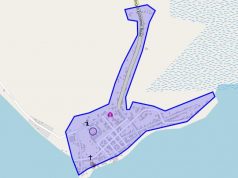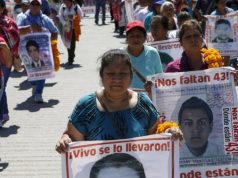MANILA, PHILIPPINES — A local media watchdog has expressed grave concern over the decision of Philippine authorities to shut down cell sites during huge festivities.
The Foundation for Media Alternatives (FMA) calls for transparency regarding the guidelines used by authorities before resorting to signal jamming.
As advocates of human rights and communication rights, “FMA believes that human rights and fundamental freedoms offline should also equally apply online. Internet shutdowns, which may come in various forms such as signal jamming, restrict people’s right to communicate,” according to the organization’s statement sent to media.
The National Telecommunications Commission has approved the Philippine National Police’s request to shut down mobile services in time for the Dinagyang festival this coming weekend, January 27 to 28, 2018. This means that mobile features such as phone calls, short message service, and access to mobile data will not be possible in select areas.
Philippine mobile operators are not new to such request. In January 2018 alone, network shutdowns were carried out at the Feast of the Black Nazarene, and at the Sinulog and Ati-atihan festivals held in Cebu and Aklan, respectively.
The first known mobile network shutdown in the Philippines was during the Papal visit in 2015.
Since then, signal jamming has been frequently used as a go-to security mechanism for large events, with public safety as their primary justification.
Other known cases include festivals such as Sinulog 2017, Dinagyang 2017, Hermosa 2016, MassKara 2017, Feast of the Black Nazarene 2017, and other events such as the swimsuit portion of Miss Universe 2017, and Palarong Pambansa 2017.
“It appears that shutting down communication networks is becoming the norm,” said FMA.
FMA noted: “The lack of evidence proving that mobile network shutdown contributes to security. The fact that bigger events such as ASEAN was conducted safely even without shutting down cell sites show that the police and authorities are capable enough to maintain security without resorting to internet or mobile network shutdown.”
“Stripping the general public of their means to communicate restricts them from contacting emergency services, authorities, and each other; paralyzes their businesses and jobs; and further places them at risk. Sacrificing access to basic services, as well as the fundamental right to communicate, in the name of purely hypothetical benefits fails the test of necessity and proportionality,” FMA added.
As such, FMA calls for a clearer policy or set of guidelines for implementing these mobile network shutdowns. Authorities must be transparent in their protocol on who can ask for, when to ask for, how long, and how wide the implementation of the mobile network shutdown will be.
“Shutting down cell sites should only be the last resort and not the default security measure,” said FMA. “However, when the need to resort to signal jamming arises, the public always needs to be informed, as they suffer the most from these shutdowns. Authorities must also ensure that emergency services can be accessed despite communication restrictions.”
“Without any transparent basis in shutting down cell sites, authorities can abuse their capability to strip the general public of their right to communicate. The masses are convinced to compromise their right to expression for their security when there is no clear need for a tradeoff. In times when authorities can easily turn off our right and access to communication, FMA urges them to #KeepItOn,” the media statement said.










